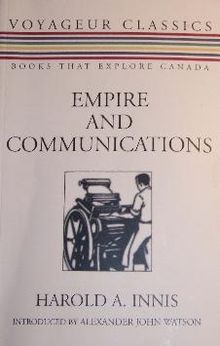httpv://www.youtube.com/watch?v=OL7YF0Djruk
The Papageno Papagena duet from Mozart’s The Magic Flute
Frye’s “Current Opera: A Housecleaning” (CW 11, 73-75), written when he was 23:
This is not a criticism of the performances of the opera company that visited Toronto recently, as the present critic succeeded in seeing only Madame Butterfly. If this was typical, they were adequate enough, if somewhat perfunctory. Of course Madame Butterfly is unfortunate in having a modern and quasi realistic setting, which throws an onus of stage “business” on the singers. The result in this case was a good deal of spasmodic cigarette-lighting and nose-blowing and uneasy and rather aimless puttering about the stage in an effort to make some gesture in the direction of drama. But the response to a melodrama of stock pathos is one thing, and the response to Puccini’s extraordinarily competent and fluent journalistic style of composition is quite another, and a general impression remained of an hermaphroditic and ill-conceived mingling of outlines.
This suggests the obvious reflection that the opera would be all the better for being completely conventionalized; surely a drama that depended on automatic movements making no pretense of holding a mirror to any kind of nature would be better suited to the declamation and rhetoric which singing involves. If Madame Butterfly depended at all on chorus work the demands of the drama would of course be less obtrusive, but when it proceeds almost entirely by aria and recitative the stage effect is bound to be stiff and awkward. The opera began as a method of incorporating Greek drama in Western art forms: two or three leading characters, a chorus, a mythological setting; all this was de rigeur throughout the seventeenth century, and in fact provides the basic form for Handel and Glück. If Handel was dissatisfied with the opera, it was not because he rebelled against the operatic convention, but simply because it was not concentrated enough for him to impose his massive designs on it. His genius expanded into the oratorio, which is not less conventionalized than the opera but far more so. After his time a century long duel was fought between the traditions of German counterpoint and of Italian melody, a conflict resolved only by Mozart, which had for its chief incidents the row between Handel and Bononcini, the Glück–Puccini opera fight in Paris, the triumph of Rossini in Vienna, the establishment of the Italian comédie larmoyante in the nineteenth century, its destruction by Wagner, and the belated attempts of Puccini and his colleagues to cling to Wagner’s coat-tails. All the energy which the great Germans bent on incorporating the opera into the tradition of systematic music did not, however, succeed in affecting the Italian model to any extent, and attempts to revitalize it now can have only an eccentric interest. The Italian operatic tradition has lived long, but it is not the less dead for having died hard. The impact of the Russian ballet annihilated what was left of it at once; a single touch of the immense strength and discipline of conventionalized art was enough to sweep the facile virtuosity of the Pattis and Carusos into limbo.
We have said that it is necessary to conventionalize the opera to avoid the absurdity and incongruity which the sensitive listener is bound to feel: every work of art asks a suspension of judgment from us, but the serious opera asks too much. But of course where the appeal is comic, where the incongruous becomes artistically valuable, this objection disappears. For if we conventionalize the opera in any direction, we immediately get something that is not an opera, however excellent an oratorio or ballet it may be. Therefore when Mozart’s unerring instinct brought the opera to its highest pitch of perfection and established it as an art form in its own right, it appeared as comedy. For high tragedy in musical drama seems difficult to reconcile with the loose and florid construction of opera: it needs massed choruses undisturbed by the broken lights of the stage. Tragedy, in short, belongs to the oratorio; the opera is comic, seldom succeeding with anything more serious than pathos. Madame Butterfly is typical of a large number of entirely unconvincing melodramas. Owing to the difficulty of getting a genuinely sympathetic audience, there is no form more easily parodied than the opera: the whole English tradition, from Gay to Dame Ethyl Smyth, has run not only to light opera but to mock opera. It will probably be impossible to convince the antiquarians of future centuries that Gounod’s Faust is not a parody of Goethe: they would simply point to Ave Maria as an instance of Gounod’s skill in parody. The association of the opera with high society and its support by wealthy women pretending to culture has also helped to make it entertainment closer in spirit to the circus than to creative art.
Whether Wagner ever succeeded in nullifying these objections is a question at present beyond our scope. His framework is mythological, of course, but not conventionalized; his gods are Dionysiac rather than Olympian, and the general effect is one of assertive antinomianism and self apotheosis carried to its fullest extent. As a master of display Wagner probably has no rival in history, but that very fact makes him anarchic and disruptive as an artist; even if he did succeed, no one else can follow him in his field. Wagner stands with Nietzsche as the joint godfather of Naziism, and until we have found out whether the swaggering and posturing of pompous heroes who do not have to pay their own way is more lasting and worthwhile, in art or in life, than a unity founded on rationality and humour, we shall be unable to put Wagner in his proper perspective. But we can hardly deny that he did his work with sufficient thoroughness; so completely did he shatter the opera that it is now in a state of decadence from which it can never be rescued. It is possible, in fact it is highly probable, that the opera, in a changing social order, is undergoing a catacomb period of which Wozzeck may furnish an example. But “grand opera” is no longer synonymous with culture, even with ermine and diamond pseudo-culture; the contemporary turn to symphonies and chamber music is a healthy and hopeful sign.


